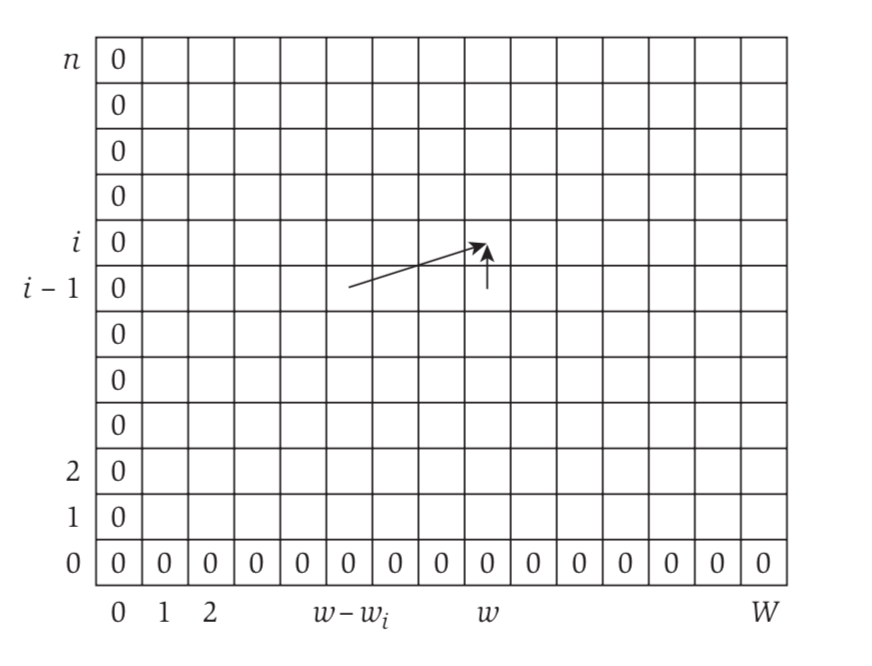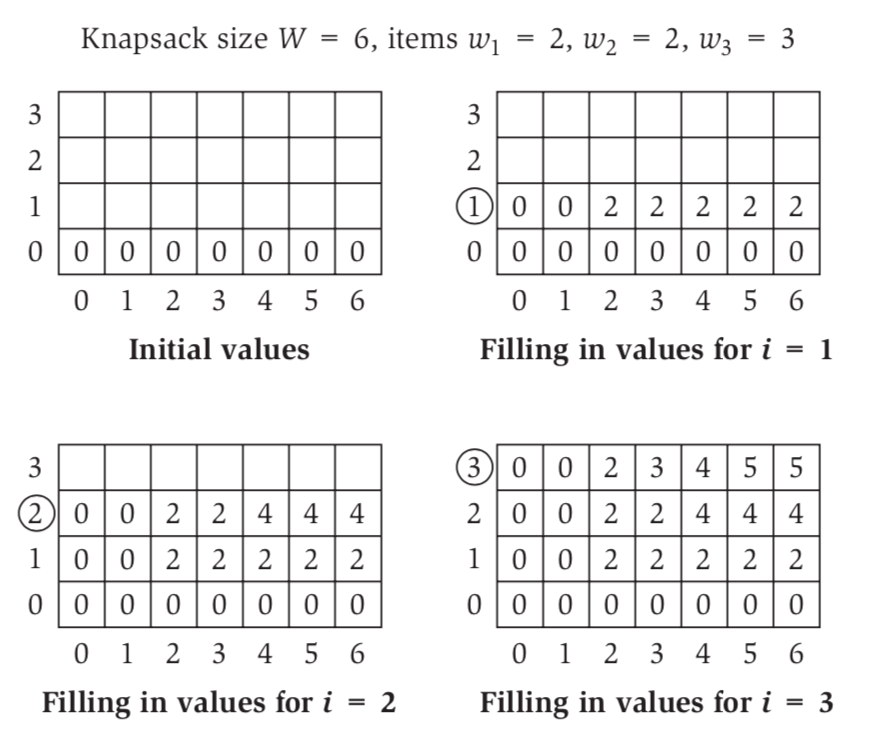Knapsack
Problem1
Each request has value $v_i$ and weight $w_i$, and we have constraint that the total of request weight $\leq$ W.
Greedy doesn’t work because sorting the W either in decreasing or increasing manner don’t produce the optimal solution.
- {W/2 + 1, W/2, W/2}
- {1, W/2, W/2}
Using dynamic programing, we can use reduce this problem to whether or not each request belongs to the optimal solution O again.
- If $n \notin O$, $OPT(n, W) = OPT(n − 1, W)$
- If $n \in O$, $OPT(n,W)=w_n+OPT(n−1,W−w_n)$
Overall, we have following rule
- If $w < w_i$ then OPT(i, w) = OPT(i − 1, w)
- Otherwise OPT(i,w)=$\max$(OPT(i−1,w),$w_i$ +OPT(i−1,w−$w_i$))
Algorithm
Subset-Sum(n, W)
- Array M[0…n,0…W]
- Initialize M[0,w]=0 for each w=0,1,…,W
- For i=1,2,…,n
- For w=0,…,W
- Use the recurrence (6.8) to compute M[i, w]
- Endfor
- For w=0,…,W
- Endfor
- Return M[n, W]

Example

Analysis
Clearly O(nW), so called pseudo-polynomial.
If we extend the problem to include the value, we can simply switch to following:
- If $w < w_i$ then OPT(i, w) = OPT(i − 1, w)
- Otherwise OPT(i,w)=$\max$(OPT(i−1,w),$v_i$ +OPT(i−1,w−$w_i$)).
- Algorithm Design by Jon Kleinber, Eva Tardos [return]